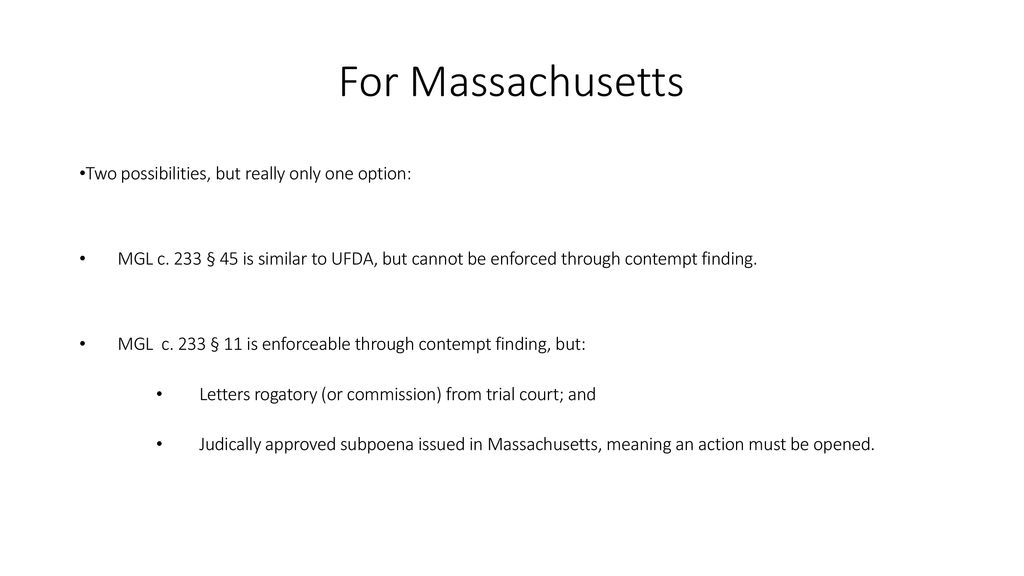Letters Rogatory vs. Mutual Legal Assistance Treaties: Key Differences Explained
Letters Rogatory vs. Mutual Legal Assistance Treaties: Key Differences Explained
Blog Article
Letters Rogatory Explained: Facilitating Legal Cooperation In Between Countries

Interpretation of Letters Rogatory
Letters rogatory are formal demands made by a court in one territory to a court in another territory, looking for support in getting proof or testimony for a legal action. This procedural mechanism is essential in the context of worldwide regulation, where legal systems may vary, and cross-border cooperation is needed. Letters rogatory facilitate the gathering of info that might be essential for adjudicating instances, specifically in instances including complicated global issues.
Generally, these demands emerge in civil, criminal, or administrative matters where a celebration needs proof that is located outside the jurisdiction of the asking for court. The letters act as a method to make certain that the principles of due process are supported, allowing courts to gain access to proof that may or else continue to be hard to reach as a result of geographic or legal barriers.
The usage of letters rogatory is governed by international treaties, bilateral agreements, or domestic laws, which delineate the treatments and commitments of the courts entailed. It is crucial to note that the execution of such requests is not guaranteed; they depend on the laws and techniques of the territory obtaining the letter. Therefore, letters rogatory are an essential tool for promoting legal cooperation and ensuring justice throughout borders.
The Process of Issuing Letters Rogatory
Issuing letters rogatory entails an organized procedure that ensures conformity with both domestic and worldwide legal standards. Initially, the asking for celebration, normally a court or legal authority, drafts an official request detailing the nature of the aid looked for, the evidence or details required, and the legal basis for the demand. This document has to be exact to help with understanding by the international jurisdiction.

The next action entails sending the letters rogatory to the marked international authority. This is usually done via polite networks or worldwide legal assistance frameworks, making certain that the request is gotten and recognized by the international court. The foreign court then processes the demand according to its very own legal procedures, ultimately reacting to the asking for celebration with the popular information or evidence, hence assisting in worldwide legal cooperation.
Relevance in International Regulation
The relevance of letters rogatory in worldwide law can not be overemphasized, as they work as a crucial device for judicial teamwork across boundaries. These official ask for aid in legal issues enable courts in one jurisdiction to inquire, proof, or the existence of witnesses from another territory, thus facilitating the management of justice in transnational instances.
Letters rogatory are especially important in the context of globalization, where lawful disputes usually cover numerous countries. They make it possible for the collection of evidence that could otherwise be hard to reach, making sure that lawful procedures are educated and fair. By cultivating partnership between judicial systems, letters rogatory help promote the guideline of regulation and promote shared respect useful source among countries.
Moreover, the usage of letters rogatory shows a commitment to worldwide standards and principles of teamwork, mirroring the interconnected nature of modern legal practices. It illustrates the importance of sticking to well-known procedures and treaties, such as the Hague Convention, which supplies a structure for these requests - Letters rogatory. Ultimately, letters rogatory improve the efficiency of lawful processes, making sure that justice is not prevented by geographical boundaries
Challenges and Limitations
In spite of their relevance, letters rogatory face numerous challenges and restrictions that can hamper their performance. One key issue is the varying legal frameworks and procedures across jurisdictions, which can cause misconceptions and hold-ups in the implementation of demands. Various nations might have distinctive needs for the legitimacy of letters rogatory, making complex the procedure further.
Furthermore, the usually protracted nature of international legal collaboration can impede go right here timely access to evidence or witnesses. This delay may detrimentally influence lawful procedures or continuous examinations, particularly in situations requiring urgent action. Moreover, the absence of resources and training in some territories can cause not enough handling of demands, resulting in incomplete or inadequate feedbacks.
Countries with much less official legal systems may battle to abide with the procedural roughness anticipated in letters rogatory. These challenges require continual dialogue and reform to improve the efficiency of letters rogatory in legal teamwork.
Study and Instances

Alternatively, difficulties can emerge, as seen in a situation entailing a European country seeking proof in an ongoing criminal matter from a non-EU country - Letters rogatory. The process was delayed as a result of bureaucratic obstacles and varying legal requirements, eventually preventing the investigation
These examples highlight that while letters rogatory can facilitate international participation and quicken legal procedures, they likewise highlight the demand for clear communication and understanding of legal frameworks between nations. Such instance studies underscore the significance of refining this device to boost performance and effectiveness in global lawful issues.
Final Thought
In summary, letters rogatory function as an important system for promoting lawful cooperation between countries, guaranteeing the collection of evidence and statement across jurisdictions. Their relevance in worldwide regulation can not be overstated, as they advertise due procedure and boost the performance of cross-border lawful process. Obstacles such as varying legal frameworks and political tensions may hinder their effectiveness. Proceeded initiatives to improve the procedure and simplify are crucial for cultivating more powerful worldwide judicial collaboration.
Letters rogatory are official requests made by a court in one territory to a court in one more jurisdiction, looking for support in getting proof or testimony for a lawful proceeding. The asking for party, typically a court or lawful authority, drafts an official request describing the nature of the support sought, the evidence or info required, and the legal basis for the demand. The international court after that refines the request according to its very own legal procedures, inevitably responding to the asking for celebration with the popular details or evidence, therefore facilitating worldwide lawful teamwork.
Moreover, the use of letters rogatory shows a commitment to worldwide standards and principles of teamwork, reflecting the interconnected nature of contemporary lawful practices.Worldwide lawful cooperation with letters rogatory is not without its real-world effects, as illustrated by different instance studies that highlight both obstacles and successes.
Report this page